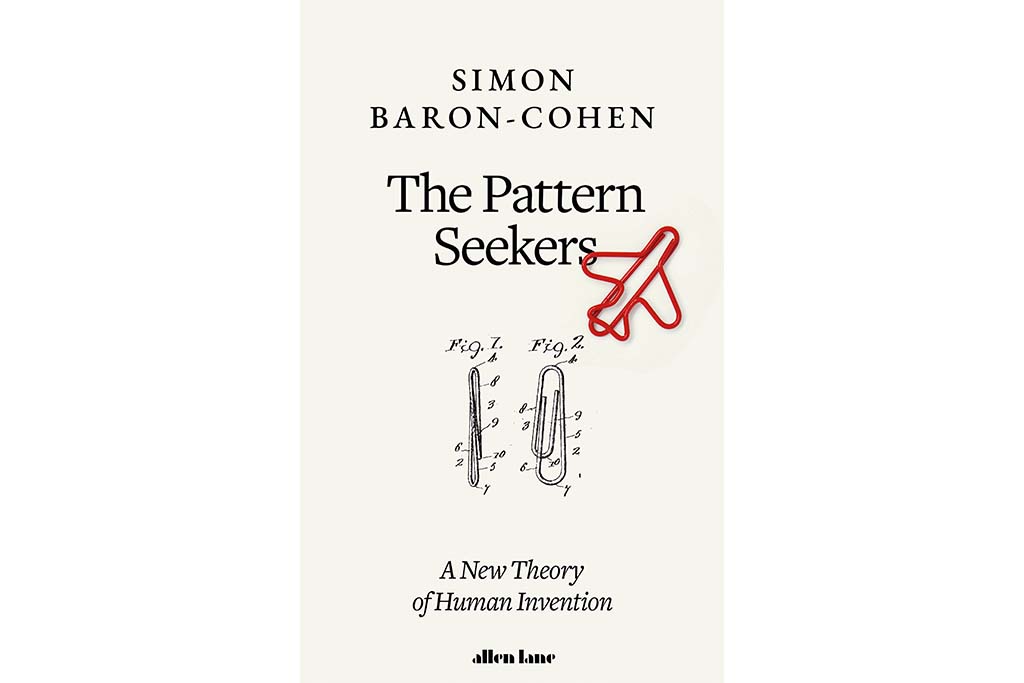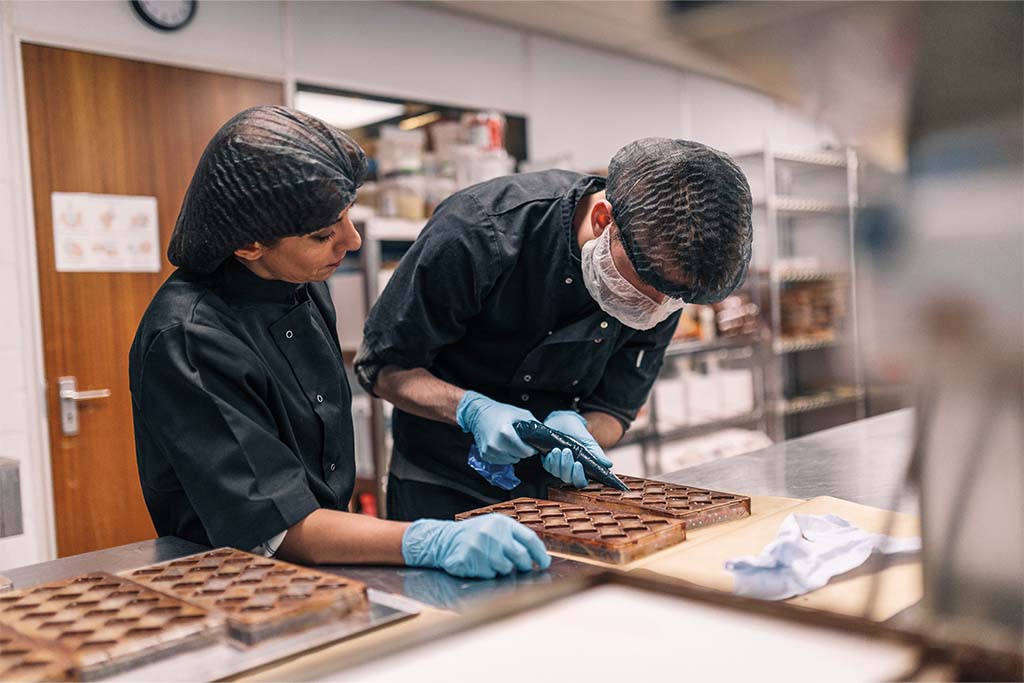Editor Talks to… Prof. Sir Simon Baron-Cohen
By
3 years ago

Annabel Heseltine meets the clinical psychologist who argues that society
has been ignoring the vital contribution made to society by autistic people.

Why did you write your book The Pattern Seekers?
When I started out in the 1980s as a teacher working with autistic children no one really knew much about autism or what to do with autistic kids. Psychoanalytical theories were still blaming autism on the home emotional climate and detection levels were so poor that autism was considered rare affecting only four in every 10,000 children.
Today we know that about one to one and a half per cent of children are autistic which is about two in every prep school and it is now recognised as a biomedical disability with a strong genetic element.
But the prognosis for these children as adults is still poor. Eighty-five per cent of them will be unemployed and that leads to poor mental health, depression and anxiety. I don’t think that’s inevitable. If we can change the way we understand autism and society is more flexible in making space for people who are different, there is no reason why an autistic kid should not end up perfectly happy.
I started my research focussing on the traditional areas of autism; the difficulties with empathy and communication are covered in my book Zero Degrees of Empathy, but realised we were almost ignoring the areas of strength. The Pattern Seekers covers the other side of the story looking at the many things to celebrate in autistic people.
If some of those autistic genes give rise to a talent in pattern recognition for example, we should see autistic people as having a mix of strengths, as well as challenges, who have played a very important part in the role of human progress
How did you set out to change people’s attitude to autism?
The theory which we explored in The Pattern Seekers is that there is a circuit in the brain which is uniquely human and allows us to look for not just any kind of pattern but an ‘if and then’ pattern. If I take an object and I do something to it, then I get a particular outcome.
This ‘generative invention’ concept can be applied to many areas; in music, maths and cooking for example. We don’t just invent once, we keep on doing it, whether it’s a simple thing like a coffee cup or Elon Musk who came out as being autistic earlier this year putting the Rover on Mars, or humans inventing vaccines. We are unstoppable inventors.
In autism, this systemising gene is tuned up to a high level to spot those ‘if and then’ patterns.
Why should we change the way we think about autism?
We all have autistic traits but most people are in the middle of the bell curve with an average number of autistic traits and that would be true for you and me. Some people are above average with more traits.
We asked 600,000 people to take our online questionnaire test – the autism spectrum quotient (AQ) – designed to measure autism and found that the people who worked in STEM had a higher AQ score on average than those who didn’t.
Our research also discovered that people working in technological areas produced children more likely to be autistic, about 10 per cent, and that the genes for systemising overlap with the genes for autism. This changes the way we should see autism.
If some of those autistic genes give rise to a talent in pattern recognition for example, we should see autistic people as having a mix of strengths, as well as challenges, who have played a very important role in human progress.

How would this discovery impact on education policy?
You only get one chance at education. If schools are forcing square pegs into round holes a child is going to end up feeling that they don’t belong, that they are failing and can end up school refusing. It should not get to that stage.
That’s a sign that we are not providing the right support or the right opportunities for everyone so we have got to figure out what has led to that and change it.
Before they even go to school, we should be able to identify those kids leaning more towards systemising, specialists, and which kids are leaning more to empathy, generalists, and tailor the education system to their needs.
The school curriculum which almost expects you to dip a toe into each subject and then move to another totally unrelated topic works for the majority, the generalists, but not for systemisers whose style of learning is to follow one topic in a narrow way, as deeply as they can. They are not going to accept a superficial answer to a question but will keep asking
why, and looking for patterns, contradictions or rules and may put off by their school experience.
In the history classroom, for example, they would probably just want to focus on one battle in a war, wanting to know every detail about a particular regiment; the names, the clothes, where they had come from what they were carrying so it’s a really narrow attention to detail.
I think that should be encouraged. Take the autist Greta Thunberg as an example. I imagine she started with a very focussed aspect of the environment like carbon emissions, but then her knowledge mushroomed out to embrace the whole of climate and environmental science.
It’s a different way of learning that you start off at a micro-level and then slowly work outwards but it should be celebrated because if these children are allowed to follow their interests in this obsessional way it can lead to extremely valuable contributions.
How can this translate into helping people with a high number of autistic traits move into employment?
We need to move the needle on supporting autistic people in jobs because unemployment is bad for your mental health, it excludes people from society.
So if we are trying to increase inclusion, employment is the fast track solution and for that to happen we need more understanding and acceptance that people are different and perhaps to remove some of the stigma.
I have been impressed by the growing awareness around neurodiversity – the idea that we don’t all have the same type of brain – especially by employers who are now asking for training in neurodiversity awareness. Just because someone doesn’t look you in the eye or isn’t very chatty doesn’t mean that they are not very good at the job you are asking them to do.
A German company Auticon (autistic-consultants), which is now in half a dozen countries including the UK, only hires autistic people, offering them jobs for life as consultants, mostly in the IT sector and supporting them when they are hiring out their services to banks and other corporate clients.

Are there specific areas where autistic people can excel?
Autistic people are highly tuned systemisers with talents other people might not have which are very useful. Security services might want to employ them for cracking codes or for spotting suspicious activity which is out of the norm. GCHQ is one example. Israel’s security division 9900 which actively employs autistic people is another.
But there are other examples. I cite a study in my book showing how autistic people are actually better at spotting items which shouldn’t be there on airport x-ray machines. But there is probably no sector of employment where autistic people couldn’t shine given the opportunity.
It could be working in a bicycle repair shop where each component in a bicycle has to be as effective as possible or a bakery, following a recipe to the nth degree to make a better loaf of bread.
Harry Specters is a chocolate-making company in Cambridgeshire which only employs autistic people, some of them have quite significant additional needs but they can follow a recipe to such a fine degree of detail. Their chocolates are outstanding and sell in Harrods for thirty quid a box. I really recommend them.
Simon Baron-Cohen is Professor of Psychology and Psychiatry at the University of Cambridge and Director of its Autism Research Centre (ARC).
The Autism Centre of Excellence (ACE) charity is being launched this month to accelerate autism research and to translate this into evidence-based support services, including addressing important issues such as more efficient diagnosis, education and employment opportunities for autistic people. For more information please contact [email protected].
READ MORE FROM AUTUMN/WINTER 2021



